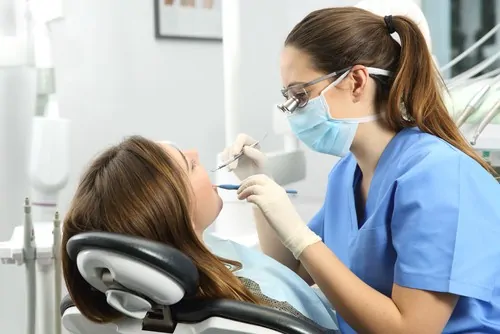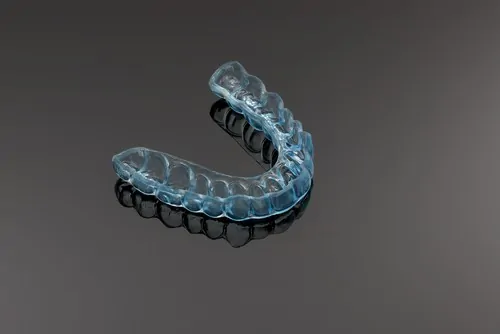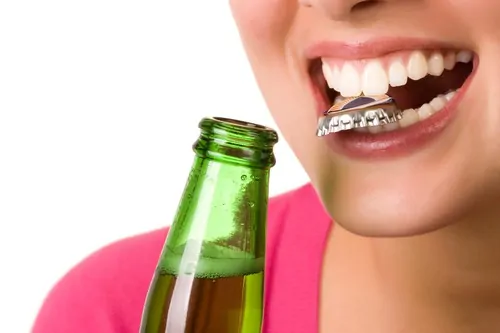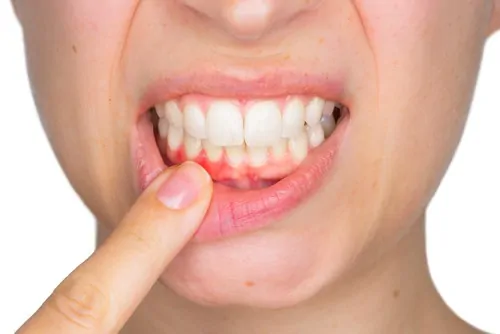Blog
6 Reasons to Quit Smoking

Every year on the third Thursday in November the American Cancer Society puts on the Great American Smokeout, which encourages smokers to try and quit once and for all. The team at our Douglasville dental office can certainly get behind an event that promotes health! Which is why we’re covering a few reasons why quitting smoking, even if you’ve tried before, is a worthwhile goal.
Smokers are 50% more likely to get gum disease than non-smokers
Advanced research has shown smoking has been linked to an increased risk of infection, including gum disease. Gum disease can be a painful problem that may eventually lead to tooth loss.
Smoking inhibits your body’s ability to heal
Whenever your body undergoes trauma, whether that’s a major surgery or minor cut, it relies on a strong flow of healthy blood to heal. Smoking, however, restricts blood vessels and diminishes the amount of blood that moves throughout the system.
Tobacco users are 6 times more likely to develop oral cancer
While oral cancer can occur in anyone, people who use tobacco are at a much greater risk. Oral cancer can affect the tongue, throat, cheeks, or any other area of the mouth. If caught early oral cancer can be successfully treated.
Yellow teeth and bad breath are incredibly common
Tobacco products contain tar and nicotine. Both of these ingredients can stick to teeth, gums, and the tongue and are difficult to remove. Because of this, smokers and users of other forms of tobacco usually have discolored teeth and unpleasant breath.
Using tobacco decreases saliva production
This may not immediately seem like a huge concern, but to your dentist in Douglasville, decreased saliva production could mean serious trouble. Saliva helps neutralize acids in the mouth and rinse away bacteria. Without it teeth are left exposed to the damaging elements and the likelihood of decay increases.
Tooth loss is 2 times more prevalent in smokers
Due to several of the other reasons above, such as a drier mouth and a decreased ability to heal, smokers are more likely to suffer more tooth loss than non-smokers. Oftentimes smokers may lose their teeth earlier than their non-using counterparts.
If you’re unsure where to start the quest towards a smoke-free life, we welcome you to call our dental office in Douglasville. We can work together to determine how quitting can benefit your oral and overall health and talk about ways you can try to quit.
Find Relief From Your Dental Fear

Dental fear is incredibly common among adult Americans. In fact, an estimated 80 million Americans have some level of dental fear. While the team at our dental office in Douglasville certainly understands that being afraid of the dentist is a very real thing, we also always want to try our best to help our patients and neighbors understand how they can overcome that fear and, dare we say, start to enjoy visits to the dentist.
Top Causes of Dental Fear
Dental fear can be brought on by a number of different things, but some of the most common reasons include fear of pain, embarrassment, losing control, or a negative past experience. It’s important for you and your dental team to work together to try to identify the source behind your fear so you can work better together to overcome it.
4 Ways to Ease Dental Fear
Talk About It. Perhaps the most important way to combat dental fear is to establish trust with your dentist in Douglasville. It may help if your dentist talks you through the appointment, letting you know exactly what is going to happen next and what you should expect. Discuss your concerns with your dental team to find what works best for you.
Distract Yourself. We understand that lying down in a dental chair while we poke around in your mouth can cause some people to feel uneasy, and that’s ok. Instead of focusing on what we’re doing, it may help to have a distraction handy. Consider bringing some music and headphones to your next visit or talk with your dental team to see if they have any amenities you can take advantage of.
Just Breathe. Practicing breathing techniques and focusing on breathing patterns has been proven to lower anxiety levels. There are numerous instructional videos online and even some courses you can take to help you. But essentially, close your eyes, take deep breaths, filling the lower part of your belly, and steadily release.
Bring a Friend. If it’s your first dental visit in awhile, have a trusted friend tag along with you. The presence of a trusted person can go a long way in helping you feel relaxed. Make a date out of it and treat them to lunch afterwards.
We Know You Can Do It
Maintaining regular dental cleanings and checkups every six months can be especially hard for those with dental fear. But keeping up with these visits is crucial for good oral health and to avoid more in-depth treatment in the future. Bi-yearly dental appointments help identify and treat any potential problems early and are key to keeping your mouth pain-free and cavity-free.
Whether it’s been awhile since you’ve seen a dentist due to dental fear, or even if you’re just searching for a new dental home, we welcome you to call our Douglasville dental office to schedule an appointment. Our entire team is dedicated to treating each and every patient with the gentle care they deserve and we’d be happy to work with you on easing any fears you may have.
Happy National Dental Hygiene Month!

October is commonly recognized as the month packed with pumpkins, scarecrows, trick-or-treaters, and all things Halloween. At our dental office in Douglasville, October has another important meaning that’s near and dear to our hearts; it’s National Dental Hygiene month – when we recognize our dedicated dental hygienists and bring awareness to the importance of proper oral health.
The Daily 4
Sponsored by the American Dental Hygienists’ Association (ADHA) and the Wrigley Oral Healthcare Program (WOHP), National Dental Hygiene Month has a different focus every year. In 2017, the theme is meant to drive awareness to the main components of a proper oral health routine including:
- Brushing
- Flossing
- Rinsing
- Chewing
The hygiene team that works closely with your dentist in Douglasville is dedicated to educating patients on the importance and proper techniques of these four crucial activities for a healthy mouth. Let’s take a closer look at each one…
Brushing
We’re all taught from an early age to brush our teeth before heading off to school in the morning and prior to hopping into bed at night. This lesson should follow us throughout our entire lives. But it’s not only important to brush every day, it’s crucial that you brush correctly every day. To make sure you’re getting the most out of your routine, always brush twice a day for two minutes each time and use gentle circles with your soft-bristled toothbrush.
Flossing
Brushing is only half of a healthy at home oral hygiene routine. You should absolutely floss in between each tooth every day. If you don’t, you leave about 35% of each tooth’s surface uncleaned and exposed to the dangers of decay.
Rinsing
Besides brushing and flossing, using a mouthwash that’s approved by the American Dental Association (ADA) can enhance your oral health. There are two types of mouthwash — cosmetic and therapeutic. Cosmetic mouthwash may temporarily mask bad breath but has no real oral health benefit, whereas therapeutic mouthwash with the ADA Seal of Acceptance has been tested to ensure it actually does what it claims, which is typically reducing bad breath, gingivitis, decay, and plaque.
Chewing
At our Douglasville dental office, we would love it if every one of our patients would brush their teeth after eating. But we understand that’s not always possible. Instead, we encourage patients to keep sugarless gum handy and chew it after meals. Chewing gum helps produce saliva, which then helps neutralize and rinse away bacteria left over from lunch. Just make sure it doesn’t contain sugar and look again for the ADA Seal of Acceptance.
These Daily 4 activities can go a long way in keeping your smile healthy. But even if you follow them exactly it’s still crucial to maintain your professional dental cleanings and bi-annual checkups. Regular dental visits help remove plaque and tartar and can help catch any potential problems early when treatment is still easy and more effective.
What’s a Dental Night Guard?

So you’ve just had your six month dental checkup and you were told you need to consider getting a dental night guard. What exactly is a dental night guard and what is it for? The team at our dental office in Douglasville is here to explain.
What’s a Dental Night Guard For?
Dental night guards are often the treatment of choice for patients who have a history of grinding their teeth while they sleep. Also known as bruxism, tooth grinding typically occurs at night when patients have no way of knowing they even do it. Chronic bruxism can lead to several problems with teeth and even the jaw. If left untreated, bruxism can cause broken, chipped, or cracked teeth, headaches, and TMJ/TMD. Bruxism can be treated and should be done so early to avoid future problems.
What Types of Night Guards Are Available?
There are two types of night guards: professional, custom-made and over-the-counter, boil and bite. While the night guards found at drugstores can work to reduce tooth grinding, there are several benefits to choosing a custom night guard made by a dentist. To begin, custom-made night guards use detailed molds of your teeth, making them a more comfortable choice. Your dentist will also consider the alignment of your jaw during the fitting process to ensure your night guard won’t place unnecessary stress on the joint which could lead to other problems. Lastly, while a store-bought night guard may seem attractive at first due to the lower cost, custom-made night guards usually last up to 10 years, making them a more cost-efficient option in the long run.
Are There Other Treatment Options?
Night guards may be the most common treatment method to stop tooth grinding, but it certainly isn’t the only option. Other recommended treatments may include methods of stress reduction, limiting the intake of caffeine or medication with stimulants, or perhaps orthodontics to straighten teeth and realign the jaw.
Signs of Bruxism
While your dentist in Douglasville is the best person to diagnose bruxism, there are several signs you should keep a lookout for in between visits including:
- Flat or chipped teeth
- Tooth sensitivity
- Waking up with sore jaw muscles
- Neck or facial pain
If you happen to notice any of these signs and suspect you may be grinding your teeth, we welcome you to give our Douglasville dental office a call to schedule an appointment. We’ll perform a thorough evaluation in our relaxing office to determine if bruxism is the root of what you’re experiencing. If it is we’ll talk with you about your treatment options and work together to decide which one may be best for you.
How to Choose a Dentist in Douglasville

Whether you’re new to the area or just looking for a new dentist, choosing the right practice for yourself and your family can be an intimidating process. It’s important to know that not all dentists will be a good fit for your unique needs. But don’t worry, there’s a practice just for you, and we’d like to help you find it.
Do Your Research
The first step to finding the best dentist in Douglasville for your family is to do a bit of research. Ask friends, family, neighbors, or coworkers who they trust with their dental care. Then, compile a list of each and every one. Consider how close to work or home you’ll want the office to be and hop online to look into the office specifics. What services do they offer? What do their reviews say? Narrow down your list to a few that hit your most important criteria and pick up the phone and call them.
Ask Questions
Once you get someone on the phone, use this opportunity to ask questions and get a feel of the personality of the practice. Some questions you should consider include:
-
- What should I expect during my first visit?
- How does the dentist keep up with new technology or training?
- Will my treatment plan and financing options be discussed with me?
Having a conversation with a team member in the office can reveal a lot about the dentist and the practice. The team member should answer pleasantly and be willing to answer any questions you have.
Schedule An Appointment
Once you think you’re ready to make a commitment to one of the dentists you called, it’s a good idea to make an initial appointment and use that visit as a ‘test’ to make sure that you’re comfortable, that you’re treated well, and that the office is clean. At this visit, you should have the opportunity to meet with the dentist so he or she can get to know about your health history, any concerns you may have, and what your oral health goals are. Your first visit should also include a thorough examination of your teeth and gums, an oral cancer check, and any necessary x-rays.
Searching for a new dentist in Douglasville is no easy task. You’re looking for someone who can treat your family the way you want to be treated and who makes you feel comfortable. And even though there are plenty of dental offices to choose from, following the tips above can help make the search easier and ensure you find the right practice for you.
Of course, if you’d like to visit our Douglasville dental office, we always welcome you to give us a call. We’ll be happy to answer any questions you may have to help you to find the best dentist for you.
5 Things Every Dental Patient Should Know

A proper oral hygiene routine at home is just as important as your bi-annual dental appointments.
We typically recommend our patients visit us at least two times a year to have a dental checkup, professional cleaning, and sometimes digital x-rays. These appointments allow us to remove any plaque or tartar that may have built up since your last visit as well as monitor your oral health so we can catch and treat problems early. But these bi-annual visits are only half of what it takes to keep a mouth healthy. The American Dental Association (ADA) and your dentist in Douglasville recommend brushing your teeth twice a day, everyday, with a soft-bristled toothbrush and using gentle circles. It’s also critical to floss once a day to remove food particles and plaque from between teeth.
There’s such a thing as too much brushing.
Scrubbing your teeth may seem like a good idea, afterall, brushing harder must remove more plaque, right? Not necessarily. Brushing your teeth roughly can remove food particles, bacteria, and plaque, but it will also damage gum tissue and eventually cause it to recede. Once gum tissue recedes, the teeth appear longer and sensitivity tends to increase, making it difficult to enjoy some of your favorite cold or hot treats.
Sugary sweets aren’t the only foods that can cause cavities.
A commonly known fact is that a diet full of sugar typically results in more cavities. But a misconception is that sugar is the only cavity culprit. The truth is, many foods can affect oral health and contribute to decay. For example, foods high in carbohydrates like bread, pasta, and pretzels can feed bacteria in the mouth and cause cavities. Carbohydrates break down into simple sugars when eaten. Bacteria then feed on these sugars and eliminate an acidic byproduct. This acid then eats away at the protective tooth enamel, leaving teeth exposed to decay.
Bleeding gums are NOT normal.
Many people think that seeing a bit of blood in your sink as you brush or floss your teeth is normal. The truth is, no amount of blood is normal. Bleeding gums can be one of the first signs of gum disease which is a serious oral health problem that may not only lead to tooth loss, but can also affect the rest of the body. Gum disease has been linked to several systemic problems including diabetes, stroke, and heart disease.
Dry mouth can be a big problem.
We’ve all experienced some form of dry mouth before, whether as a result of being dehydrated or as a chronic issue. Having dry mouth that doesn’t go away could be dangerous for your overall oral health. A dry mouth is a sign that your body isn’t producing enough saliva to keep the mouth moist and rinse away bacteria. Without saliva there to do its job, bacteria is left to linger around, produce acid, and cause cavities.
If it’s time for your bi-annual dental cleaning and exam, call our Douglasville dental office to schedule an appointment.
Start This School Year with a Healthy Smile

As we all gear up to head back to school, loading up on folders, notebooks, pencils, and backpacks, the team at our dental office in Douglasville wants to send a friendly reminder to our patients and neighbors about the importance of getting your child (or yourself) to the dentist before school starts.
Dental Checkups Help with Overall Health, Too
While we encourage all of our patients to see us at least biannually, we also like to see them prior to starting a new school year. Visits to your dentist in Douglasville not only help keep smiles healthy, they also help keep whole bodies healthy. Poor dental health has been linked to:
- Diabetes
- Asthma
- Heart disease
- Obesity
In fact, the National Institutes of Health reported that 20-30% of children have chronic health conditions due to oral health. Regular dental exams and cleanings are key in catching any problems, or potential problems, early to avoid these serious diseases. It may also be recommended that your child receive protective sealants to aid against decay and cavities.
Keep Kids in School
It’s our goal to keep kids healthy and in school so they can learn, thrive, and get good grades. However, recent research has suggested that poor oral health has been linked to poor grades. According to the American Journal of Public Health Dentistry, children in elementary school missed 6 days of school on average each year. Of those 6 days, 2 of them were because of dental problems. As we all know, when kids aren’t attending class, they’re missing key elements of their education. What’s more, when they’re in pain due to a toothache brought on by a cavity, their ability to pay attention to lessons diminishes.
Hygiene at Home
Back to school dental visits are a great preventive step to ensure your child is starting the school year off healthy. But a good hygiene routine at home is equally important. Make sure your child is brushing every morning (after breakfast!) and every night for two minutes each time. Also, don’t forget to have them floss once a day.
Following a proper hygiene routine and maintaining appointments with our Douglasville dental office can keep you and your child smiling and in good health all the way through to summer break.
If you’re looking for a Douglasville dentist, schedule an appointment today!
6 Worst Habits for Your Smile

We all know that eating or drinking too much sugar can cause cavities, and by now we should all be aware of the oral health risks associated with smoking or tobacco use. But these common facts aren’t the only habits that may be affecting your smile. At our dental office in Douglasville, we know plenty of other habits that can be just as damaging. Check out some of the top, and perhaps surprising, culprits.
Biting Your Nails
Nail biting is an incredibly common habit that comes with its share of harmful side effects. Not only can biting your nail expose your body to the tons of bacteria that live under the nail, it can also cause damage to your jaw and smile. The act of nail biting cause the jaw to protrude at an unnatural angle, placing pressure on your jaw joint. If the habit continues, you could experience TMJ or TMD. What’s more, nails are made of a hard material and biting them off can cause teeth to chip or break.
Eating Ice Cubes
Ice cubes have one purpose and one purpose only — to make things cold. However, some individuals have a difficult time keeping themselves from chewing on these frozen cubes of water. Crunching on ice is a sure way to create tiny chips in the teeth, leaving them exposed to bacteria that cause cavities. Eating ice can also lead to bigger cracks or breaks that require cosmetic dentistry to fix.
Sucking on Lemons
Exposing your teeth to lemons also exposes them to the high amount of acid found in these colorful fruits. Acid of any kind erodes the protective layer of tooth enamel. Once the enamel is gone, you may experience increased tooth sensitivity as well as an increased risk for decay.
Brushing Your Teeth Too Hard
Your dentist in Douglasville encourages you to brush your teeth twice a day, but not just any type of brushing will do. Any scrubbing motion or using too much pressure can cause gums to recede. Instead, brush using gentle circles to get your smile clean and keep it protected.
Clenching and Grinding
Some people find themselves clenching or grinding in moments of stress. Others do it while they’re sleeping and don’t even know it. Either way, there are various types of dental issues that can occur as a result including jaw pain (TMJ/TMD), worn down teeth, or broken teeth.
Using Teeth as Tools
We’ve all used our teeth to open pesky packaging or to hold something when our hands were full, however it’s really not recommended. Ripping open stubborn packages or using your teeth for anything other than eating can chip teeth or cause other damage.
The team at our Douglasville dental office would prefer if all of our patients and neighbors had perfectly healthy smiles and never encountered any problems, which is why we put so much emphasis on preventing dental issues from ever occurring by educating them on things just like this. But we understand that things do happen, and when they do, we’re more than happy to help.
How to Spot Receding Gums

Receding gums is one of the most common ailments that the patients at our dental office in Douglasville experience. While gum recession is treatable, it can still be painful and sometimes scary to wonder what is going on inside your mouth. In this blog, we’re going to cover how to spot signs of gum recession and some of the reasons as to why this happens in the first place.
Why Do Gum Recede?
Let’s first take a look at why gum recession happens so we can better understand what it is and how to prevent it. While there are numerous causes to gum recession, some even out of our control, the most common reasons tend to be:
- Brushing too hard
- Grinding your teeth
- Tobacco use
- Genetics
- Gum disease
Knowing this, there are steps you can take to reduce your risk of receding gums. First, make sure you’re brushing and flossing everyday. Next, make sure that when you do brush you’re using a soft-bristled toothbrush and a gentle circular motion. Stopping the use of tobacco will not only lower your risk of gum recession but also all kinds of cancer, tooth loss, and stained teeth. While you can’t do much about your genetics, you can do something about catching any dental problems, including gum recession, early.
Recognize the Signs of Gum Recession
The best way to catch gum recession is to make sure you see your dentist in Douglasville at least every six months. Regular visits help get a trained eye on your oral health and it’s the ideal way to identify any dental problems early when treatment tends to be more successful. But dental visits aren’t the only way to help protect your oral health. There are things you can monitor at home in between visits too. Keep a lookout for any of the following and notify your dentist of any concerns:
- Tiny indentations in the teeth close to the gum line
- Teeth that appear longer
- Sensitive teeth
What Happens if Gum Recession Isn’t Treated?
Obviously we’re big fans of getting treatment for gum recession (or any other oral health concern). But why are we in favor of it so much? Because of the wide-spread problems that can happen if treatment doesn’t happen, including:
- Severe inflammation and tooth pain
- Increased susceptibility to bacteria
- Eventual tooth loss
If you suspect that your gums are receding, we’d love to help. Call our Douglasville dental office to schedule an appointment.
What Does Your Smile Say?

A healthy smile is definitely a powerful tool. It can change the mood in a room. It can convey confidence and professionalism, even if you’re not feeling it. You can hear someone smiling over the phone, without even seeing their face light up. My dental office in Douglasville knows the importance of a great first impression because it needs to leave a lasting impression. That’s why we make sure your teeth and gums are healthy so that your smile is one you’ll be proud to share with everyone.
Your Personality is Showing
A smile projects a more positive vibe, friendly and approachable attitude, along with inherent leadership skills. It’s been shown that humans will smile more depending on who is at the other end of the conversation. During our initial contact with other people, our first impressions and assessments are usually made within seconds. Most of the time this is all being subliminally so we’re not even aware we’re doing it.
Your Teeth Tell A Story
Hippocrates believed that every person belongs to one of four different types of temperaments. And believe it or not, your teeth determine what group you belong to. This is known as Morphopsychology-Visagism and it’s the possible connection between your personality and your teeth shape. Your dentist in Douglasville wants to know what category you belong to!
1. Melancholic/Sensitive = Oval-Shaped Teeth
Personality traits include: Artistic, perfectionist, organized, reserved, timid, and abstractive
2. Sanguine/Dynamic = Triangle-Shaped Teeth
Personality traits include: Impulsive, extroverted, communicative, enthusiastic, and eager
3. Choleric/Strong = Rectangular-Shaped Teeth
Personality traits include: Intense, objective, explosive, intense, passionate, and entrepreneurial
4. Phlegmatic/Peaceful = Square-Shaped Teeth
Personality traits include: Conformist, discreet, diplomatic, mystic, and spiritualized
Sharing your smile with the world is important in so many ways. It conveys your intent and personality. Your smile even has the ability to boost another person’s mood, making them more happy in the process. My Douglasville dental office wants to help you put your best smile out there and ensure your true confidence and charisma always shine through.
Accepting new patients from Douglasville, Lithia Springs, Villa Rica and beyond.
